
Deliverable 2.1 Participatory methodology guideline
The “Participatory Methodology Guideline” is a detailed tool created to promote the active involvement of young citizens and various stakeholders in initiatives related to community development and sustainability.

Deliverable 2.2 Recommendations to set up LLs and thenetwork of LLs on the themes of CC and SD Education
The primary objective of this document is to provide a comprehensive and adaptable framework for setting up and operating Living Labs (LLs) focused on Climate Change (CC) and Sustainable Development (SD) education.

Deliverable 2.3 Web-based catalogue of educational resources
This a comprehensive web-based catalogue, seamlessly integrated into the Mindthe Cap platform. This innovative resource offers a wealth of inspiring content, including methodologies, key documents, multimedia resources, applications, educational games, non-formal activities, services, and valuable data.

Deliverable 2.4 List of a wave of Educational Initiative
The primary objective of the Educational Initiatives (EI) is to equip participants with a comprehensive understanding of the Areas of Protection (AoP) nexus, a crucial aspect identified by the project (Food, Energy, Biodiversity, Water, Waste), and the twelve sustainability key competencies of GreenCom.1

Deliverable 2.5 Preliminary European Multidisciplinary Competence Framework on CC and SD
This comprehensive framework is designed to address five pivotal areas of protection. It incorporates eight critical competencies essential for lifelong learning, utilizing state-of-the-art educational strategies to foster an environment of continuous intellectual and personal growth.

Deliverable 3.1 Stakeholder Analysis
Our project focuses on young citizens as the main target group and actors of change. It works mainly in favoring long term behavioral change in youth through the co-design of the competence framework on Climate Change and Sustainable Development Goals.
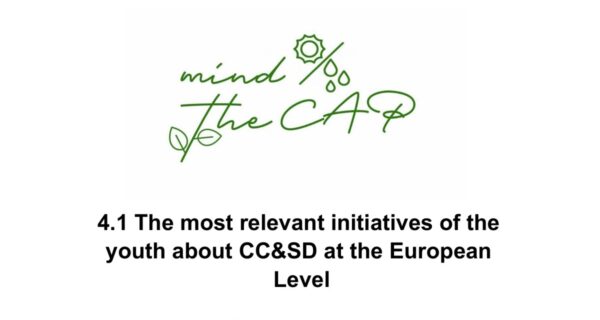
Deliverable 4.1 The most relevant initiatives of the youth about CC&SD at the European Level
Across Europe and the Mediterranean, young people have taken center stage in the fight against climate change. They are organizing movements, demanding accountability, and taking to the streets to secure a livable planet for current and future generations. This handbook brings together the voices, actions, and visions of these movements, not as a conclusion, but as a snapshot of a living, evolving journey.
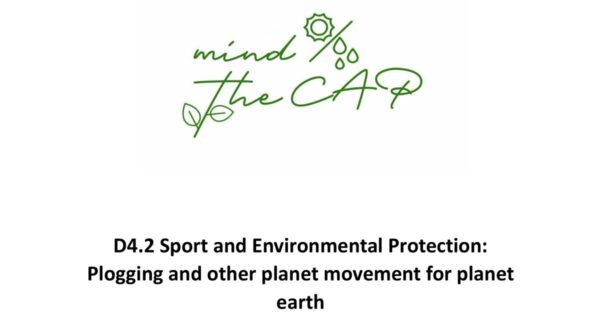
Deliverable 4.2 Sport and environmental protection. Plogging and others sport movements for planet earth
Plogging is an innovative outdoor physical activity that merges personal fitness with environmental responsibility. The term “plogging” is derived from the Swedish word plogga, a blend of plocka upp (meaning “to pick up”) and jogga (meaning “to jog”). This environmentally conscious trend began in Stockholm, Sweden, in 2016, when Swedish athlete and environmental enthusiast Erik Ahlström initiated the concept.
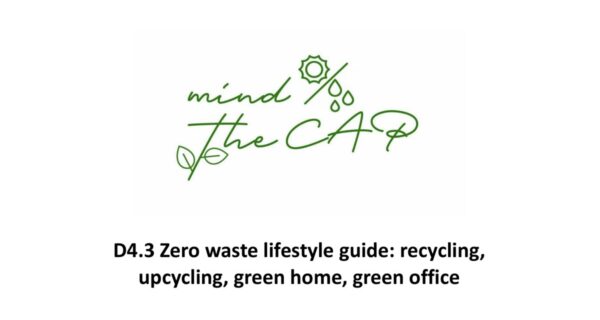
Deliverable 4.3 Zero waste lifestyle guide: recycling, upcycling, green home, green office
Zero-waste refers to principles of minimizing waste production as much as possible, thus a zero waste lifestyle is a lifestyle where individuals are mindful of their purchases, the waste they create in their everyday lives, and they try to minimise the amount of waste by applying different strategies, for example, shopping at package free shops, opting for more natural packaging, buying less stuff in general, and other.
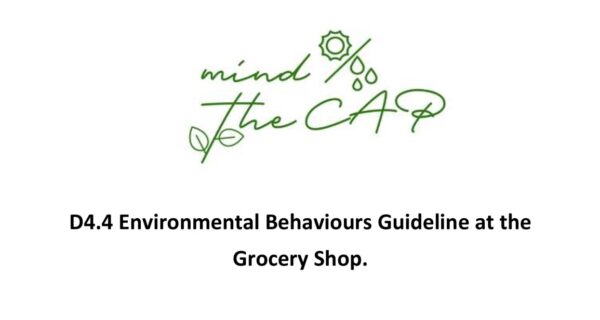
Deliverable 4.4 The environmental behaviours guideline at the grocery shop
This guide was elaborated for just one reason: to help people make smarter, more thoughtful decisions when buying groceries. Not in some perfect, idealistic way – just in a way that’s better for the planet and easy enough to stick with. It’s especially geared toward younger shoppers and folks in the community who want to do better but aren’t sure where to start.
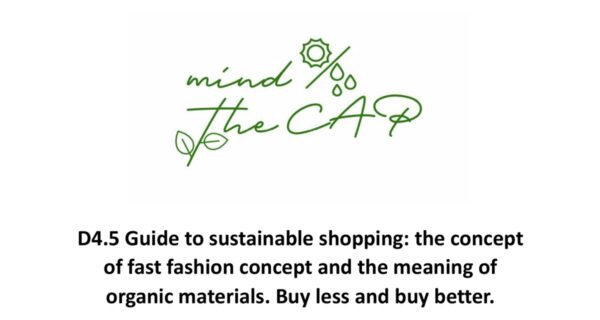
Deliverable 4.5 Guide to sustainable shopping: The concept of fast fashion concept and the meaning of organic materials
Fashion today is faster, cheaper, and more accessible than ever—driven by the rise of online shopping, influencer culture, and relentless social media trends. With a single click, a new wardrobe can arrive at your doorstep overnight. But behind this convenience lies a troubling reality: the fast fashion industry is one of the most destructive and exploitative sectors in the global economy.
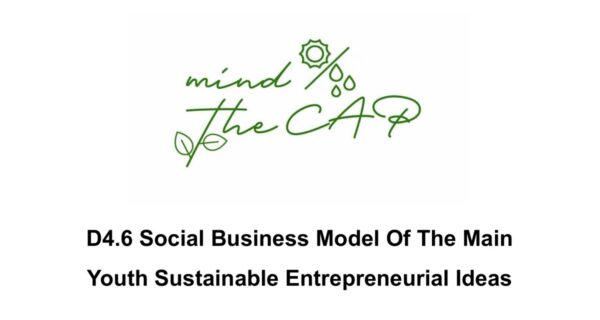
Deliverable 4.6 Social Business Model Of The Main Youth Sustainable Entrepreneurial Ideas
The purpose of this deliverable is to synthesize and present the most promising youth-led social business concepts that emerged from the Social Business Learning Programs (SBLPs) and local workshops implemented across the five partner countries.